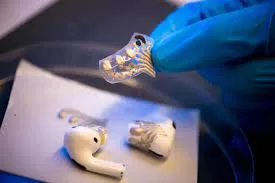With up to 50 million people logging their menstrual cycles on personal devices, period-tracking apps have become an integral part of the booming “femtech” industry. But how reliable are these apps in providing accurate information about menstruation and fertility? While they offer convenience, evidence suggests their predictions may not always be accurate. Here’s a closer look at what these apps can—and can’t—tell you.
How Period-Tracking Apps Work
Period-tracking apps rely on user input, requiring individuals to record personal data such as period dates, symptoms, mood, and sexual activity. Based on these entries, the app algorithms predict when your period will begin, when you’ll ovulate, and your fertile window—usually 3 to 7 days in a cycle when conception is more likely.
Some apps use only the length of the menstrual cycle to make predictions, while others incorporate biometric data like body temperature and cervical mucus consistency. This additional data can improve the accuracy of ovulation predictions. However, many apps don’t use biometric data in their calculations and lack transparency about their prediction algorithms, raising concerns about their reliability for most users.
The Myth of the 28-Day Cycle
For decades, the “normal” menstrual cycle has been defined as 28 days with ovulation on day 14. However, recent studies, many conducted using data from period-tracking apps, show that only 13–16% of people actually have a 28-day cycle. Ovulation on day 14 is similarly rare, with only 13% of women experiencing this. Many individuals see significant variations from cycle to cycle, with more than half of women having a cycle length variation of five days or more.
Despite this variability, many apps continue to base predictions on the outdated 28-day model, which may not be accurate for the majority of users.
Can You Rely on These Apps for Pregnancy Prevention?
Some users turn to period-tracking apps for fertility planning, either to increase their chances of conception or as a natural contraceptive method. However, the effectiveness of these apps in preventing pregnancy is comparable to condoms, with a failure rate of around 7.2–8.3% according to available studies. These studies, however, often exclude participants whose cycle lengths vary by three to seven days, casting doubt on how effective the apps truly are for those with irregular cycles.
Do Period Trackers Improve Body Awareness?
While many period-tracking apps market themselves as tools for self-empowerment and education, studies suggest that users may not necessarily gain a better understanding of their menstrual cycles. One study found that users of these apps were no more likely to have basic knowledge about their cycles than non-users. In some cases, users may even become anxious when their symptoms or cycle dates do not align with the app’s predictions.
The quality of the information offered by these apps is also inconsistent. Some apps may help destigmatize symptoms like vaginal discharge, but this information is often locked behind a paywall. Additionally, some apps endorse non-scientific beliefs, such as cycle syncing or seed cycling, further questioning the value of the information provided.
Should You Use a Period-Tracking App?
While period-tracking apps can be a helpful tool for keeping a record of your cycles, they should not be relied upon for absolute accuracy. Variations in cycle length are common, and irregular cycles don’t always indicate a health issue. For more reliable insights, especially if you have concerns about your cycle, it’s best to consult a healthcare professional.
These apps can provide useful estimations for when your period might start or help with tracking menstrual history for medical appointments. However, the commercial nature of these apps, combined with their limited regulation, means users should approach their predictions with caution.












